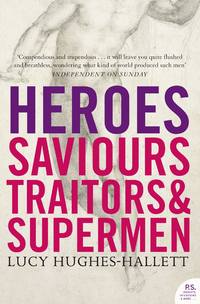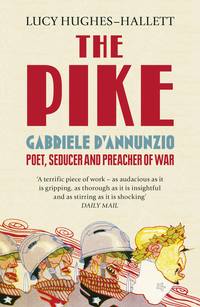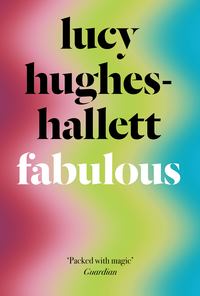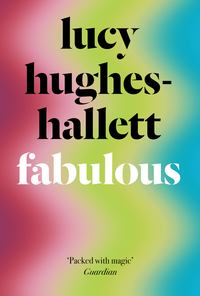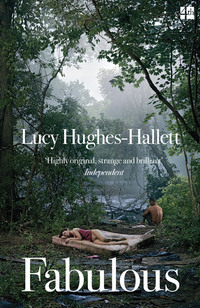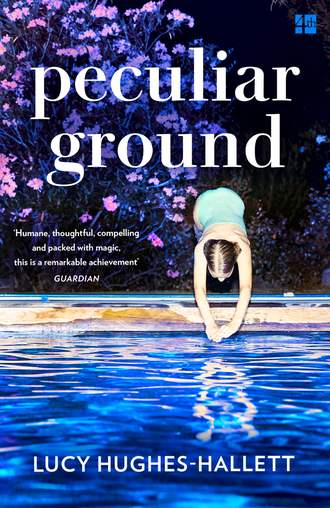
Полная версия
Peculiar Ground
‘Watch out that fishing boat doesn’t spot you. And Nell, if you feel seasick, ask the fish to help you – I think it’s a kind one.’
He went with Dickie into the changing room, the one for boys across the little hallway. On the doors hung girly and boyish things . . . antlers for the boys, a necklace made of nutshells for the girls. Mrs Rossiter had laughed when Green hung them there – ‘Does he suppose we can’t find our way around a hut?’ – but they had stayed, adding to the hut’s oddity. It looked, Nell thought, like a house where savages lived, all made of sticks and straw and things you pick up.
Her father dived in while Dickie lay tummy down on his coracle and flapped his hands. For a while they were all fish. Then they were all water boatmen. And then more grown-ups arrived and Flossie said she was cold, and got out and put on sunglasses, which is something no child ever did so it was as though she had swapped sides. She couldn’t have been that cold because she didn’t go and change but sat down on the low wall between Antony and Nicholas. Daddy got out too and stood in front of them, and Nell had that lonely feeling again because they were all laughing, and Nicholas was teasing Flossie and making Daddy tease her too and it was lovely for them but horrid for her because they had all completely forgotten her and she was left with just Dickie, and the fact that you happened to be in the same family with someone and both of you children absolutely did not mean that that someone was the person you wanted to be left with. Dickie splashed her on purpose, and she was angry and grabbed his coracle and tipped him into the water, which was rather awful because she knew he couldn’t really swim.
‘For goodness sake, is no one watching that child?’
Mrs Rossiter arriving with two people Nell didn’t know. The man kicked off his shoes and jumped in the water with all his clothes on and got hold of Dickie, who was all right really because he was clinging onto the inner tube, just not inside it any more, and dragged him quite roughly to the side of the pool. Dickie was crying and swimming-pool water was coming out of his mouth and nose so he was much more blubbery than the crying by itself would have made him. Nell stayed still, and everything was happening very slowly in bright light. Quiet like her nightmare. Mrs R and Daddy were staring at each other across the pool. They both looked older than usual and as though they had to cling on tight to something or they might fall.
‘So. Lane.’
She never called him Lane. She called him Hugo. Calling people by their surnames meant they were less important. In a way Daddy was less important because he worked for the Rossiters, but usually you couldn’t tell that.
‘If you can’t do your job, you could at least take care of your son. And what on earth are you all doing here in the first place? Get rid of your bloody dog.’
The strange man had climbed out of the pool and Wully was licking his wet ankles. Daddy growled at Wully, and then shouted at Nell, ‘Come on out.’ Then he walked slowly round the pool and said something very quiet to Mrs R, and took Dickie by the hand and walked with him into the changing hut. Nell got out, and ran behind them, but she could hear Nicholas talking in his joking voice again, and saying, ‘Benjie to the rescue! There you were pretending to be a lounge-lizard and all the time we had a hero in our midst.’
She could see the man called Benjie taking off his wet trousers and she could hardly believe it. Underneath he wasn’t wearing bum-bags like the ones Daddy wore but tiny knicker-shaped swimming trunks like Dickie’s, but they weren’t all woolly, they were shiny and slithery like snakeskin, and the most amazing thing was that they were patterned with green and purple scales just like a snake.
*
So what about Nell’s mother? Why was she so seldom in evidence? Because she didn’t want to be, is why.
Chloe Lane had realised that to be inconspicuous was a precious pass to freedom. Chloe’s so sweet, said Lil. Chloe, could you be an angel and . . . Chloe, I cannot think what to do about . . . Why not ask Chloe? She’d do it (open the fête, chair the WVS, judge the school’s dressing-up competition) so much better than me . . . Chloe fits in so perfectly! I don’t know why I always look like a cockatoo . . . Chloe’s so clever with flowers . . . Chloe’s so clever . . .
Every single one of Lil’s compliments was an order, or a demand, or a subtle derogation. At Wood Manor Chloe was her own and her servants’ and children’s mistress. At Wychwood she was the agent’s wife. She stayed away. Dancing attendance was Hugo’s job.
*
The park was blond. Dry grass, exhausted by summer, lay aslant all one way, like the hair on an animal’s back. At midday the horse-chestnut trees were dark to blackness, the beeches purple. Bleached, the landscape became mineral – shining in shades of jet and copper and silver-gilt. Even the sun was sombre: light this bright and desiccating carried its antithesis within it. Only in the evening, the hour of Christopher’s liberation, would the light soften and waver, as the deer swam silently across the broad rides and the midges trod air above the lakes.
Antony left the noisy group by the pool and walked down, across the terrace, past the canal and on into the severe corridor of the double yew hedge. Halfway along was a trellised arbour with a stone bench and an unsteady wooden table. He sat. Directly opposite him was a gap in the hedge, framing a view of the park. Antony knew what would shortly appear there. He had seen it approaching. And there, sure enough, tightrope walking along the ha-ha’s stone lip, came Jack Armstrong.
This wasn’t a coincidence. He had seen, as he was seen. Seventeen years old, self-absorbed. Thin, slightly round-shouldered, long neck, vulnerable Adam’s apple, copper-coloured hair. He knew Antony was there. He didn’t look round, just paced past heel to toe, slow, arms outstretched for balance, back-lit. There’s a damp look to very young skin, a clamminess which is faintly repellent to all but those who lust after it, and for them, as marvellous as mother-of-pearl. Antony didn’t move. Jack crossed the gap. An interval. Deer fidgeted beneath the horse-chestnut trees in the middle distance. A Land Rover crossed towards the home farm. Antony remained still. Then Jack reappeared, upside down, walking on his hands, almost made it across the gap, arms visibly trembling, tumbled, attempted a somersault, botched it and rolled out of sight with a snort.
Between the cliff of the hedge and the precipice of the ha-ha was a strip of grass, walled with yew on one hand, with nothing but air on the other. Open to the park, concealed from the garden. Antony stood up and walked through the gap: found him.
Helen, walking wet-haired and barefoot along the green corridor, saw Antony go. Inquisitive, she followed onto the grassy ledge. Seeing what had drawn him, she stepped quickly back.
*
After lunch the grown-ups went quiet. Most of them were under the cedar tree, Helen and Antony on rugs, Benjie hogging the swing-seat. In the drawing room Christopher was dozing. Nell came in, silent in her sandshoes, took two pearl-grey damask cushions, and carried them off, as hasty and triumphant as a dog with a stolen cutlet, to the wedge of space between a high-backed sofa and the wall. Stillness. Nell’s small shuffling noises as she made her nest. A book sliding out of Christopher’s hand and down the slope of his thigh. Voices from the tennis court, as inconsequential and tinny as the chattering of mechanical toys. Nearer at hand the peacocks’ screaming, so eerie and yet so familiar to everyone in the household that they heard it not as sound, only as an intensification of atmosphere. In came Nicholas.
‘What’s going to happen?’ asked Christopher, opening his eyes, the rest of him still unmoved.
‘I don’t believe anyone, the main actors included, could tell you.’ Nicholas was leaning against a column, silhouetted against the French window and the deserted lawn. ‘Not a single one of them fully comprehends the possible options.’
‘Do you?’
‘No. But the ones I can think of scare me rigid.’
Like a nanny going off-duty, Nicholas had laid aside his teasing, bustling manner. He talked to Christopher as though continuing a long and searching conversation, even though this was the first time the two of them had spoken to each other directly that weekend.
‘But the bomb?’
‘It’s the tiger at the bottom of the garden and everyone knows the wise course is to leave it be, but everyone is itching to prod it with a stick just to see what happens. And at every point along the way towards whatever kind of climax we’re heading for, it’s possible to say, well, look, it’s all right so far. Until you reach the point where it really isn’t all right. But no one will know where that point is until they’ve passed it.’
‘Kennedy will want to prove how good his nerve is.’
‘Unfortunately.’
‘But what does Khrushchev want?’
‘Dear Christopher, if we knew that . . . Berlin is maddening for the Russians. It’s maddening for everyone. It’s geographical nonsense. For Khrushchev this rush for the exit is a humiliation. It shames him internationally. It weakens him with his own people.’
‘But no one, surely, is going to start chucking atom bombs about because a few thousand Germans want to live in a different part of Germany?’
‘I don’t think the Russians would. Not deliberately. But for most Americans Berlin is just a battlefield in a foreign war they thought they’d won. For them unleashing mayhem there is conceivable precisely because they can’t conceive of its reality.’
Nell lay, arms curled around her knees, imagining herself as round as a snail. In this very room, hiding behind this very sofa, she had heard her mother and Mrs Rossiter talk about atom bombs. Everyone, everyone, everyone in the whole world would die. And all the animals. And no one would ever be born again. Or if they were they’d be peculiar shapes and be so ill they’d just die almost at once. The only thing alive would be grasshoppers. She’d seen a grasshopper in Cornwall. Perhaps the whole world would be like a beach, dead sand and big green things that leapt, and had hard bodies, and horrid tickly legs. She couldn’t believe it. If it was true then why weren’t Mummy and Mrs R crying? She sometimes thought about old people and wondered why they weren’t all crying all the time because they must know they were going to die quite soon. But if everyone . . . The thought was too laborious to complete.
And now Mr Rossiter and Nicholas. They were so quiet and serious. Mr R was often like that, but he always smiled when he talked to her which made him not frightening. But Nicholas frightened her now because it was as though he had been in fancy dress and now he was his real self and all the pretending had been to cover up the awful thing. And they were talking so quietly. She knew she wasn’t supposed to have heard any of this. It was like when she found her uncle dressed as a pirate in Daddy’s dressing room, before her birthday party, and she had spoiled the surprise of the treasure hunt, and he was as embarrassed as she was and she had to go away quickly and pretend she hadn’t seen. Now she had to be not there. She fixed her eyes on the dark-haired angel hanging in the patch of the opposite wall that was all she could see past the sofa’s arm, and lay snail-still.
Christopher was talking now, his voice gentle, as though he was stalking a thought that would bolt if startled.
‘When I was a boy here, my parents used to talk about the invasion. Germans would arrive in the village dressed as nuns, they were saying. Can you imagine how exotic that was? I’d never seen a nun. They were going to drop out of aeroplanes. The Blitz had taught us that anything could fall out of the sky. There was no limit to the ways in which normality could be exploded. I was very much afraid, and at the same time I couldn’t take it seriously. We kept knapsacks packed with clean vests and chocolate, so we could take to the hills. What hills? What were we going to do in them? Our nanny had told us over and over again that you couldn’t live on chocolate.’
‘American schoolchildren are being taught, now, to hide under their desks when the warning comes. Is it kind to suggest there’s any chance of survival, or is it just dishonest?’
A pause.
‘Macmillan believes Khrushchev can be talked down, and Jack and Mac are close,’ said Nicholas.
‘Those Kennedys put ambition before the clan. Remember Joe losing at tennis here? Perfect manners, of course. But he cared dreadfully.’
Of course Nicholas didn’t remember. He would have been a child when Kennedy père was en poste in London, but he refrained from saying so. He liked Christopher’s benign assumption that each one of his acquaintances was acquainted with all the others.
‘Khrushchev is wily. So is Brandt and he thinks he can ride on Kennedy’s coat-tails.’
More names of people she didn’t know. Snail-Nell became a dog and – as dogs do – she slept.
Antony
It transpired that Christopher had expressly invited the Lanes to swim that morning, and Lil rang up and apologised very graciously, and explained that she had been so shaken by seeing the boy in trouble that she had lost her head. I think she really was mortified. She can be spiteful, but humiliating the man in public like that wasn’t her usual style.
By late afternoon everything was affable again. Hugo Lane, with what degree of soreness I couldn’t determine, had returned to the house to make up a tennis four. I met his little girl on the terrace trailing after Mr Green (they seemed to be good companions) as he set off to pick vegetables for dinner. I was curious to see a part of the domain I didn’t know, so I joined their expedition. Green wore corduroys gartered with raffia below the knee but, for all that he looked like an illustration from an Edwardian children’s book, he liked talking motorbikes. I egged him on to expatiate on the rival merits of the Triumph and the BSA (Beezer, he called it) while Nell walked, humming to herself, behind.
The walled garden is a good quarter of a mile from the house. The entrance is all but choked by a fig tree. Green, who likes his peach trees splayed against the walls as though crucified and his strawberry-beds neatly tucked in under veils of tarred netting, is uncharacteristically lax in his treatment of this tree. Figs aren’t easily come by in Oxfordshire: he’s inordinately proud of, and indulgent towards, his enormous green pet. We had to duck under its lowest branches, Nell grabbing a great stubby-fingered hand of a leaf as we passed. Beyond were rows, racks, bamboo canes tied into tepees, pergolas – all sharply angled contraptions, framed by exactly squared-off box hedges at shin-height – all striving ineffectually to contain the voluptuous lollings of vegetation.
Within the high brick walls it was intensely still and hot. There was no view out except upwards to the white sky. The scents were of stagnant water and dried hay and lightly rotted compost. Nell and I stopped by a sprawl of tomato vines and began to pop tiny red fruit into our mouths, where they felt warm, and lightly furred, and autonomously alive. Green’s pain at seeing his babies so devoured was writ large on his face, but so was his awareness that I was privileged and that Nell – at whom he might otherwise have growled – came under the aegis of my guestly protection.
‘Does your father let you wander just anywhere?’ I asked her. I wasn’t looking for information, just filling a pause.
‘I’m with Mr Green. I must always make sure there’s a grown-up who knows where I am. And I mustn’t go swimming on my own. And I mustn’t go upstairs unless Mrs Rossiter asks me to.’
‘And is it lovely coming over to Wychwood?’
The question didn’t seem to mean much. To her, Wood Manor and Wychwood were continuous, the whole domain her home. I wasn’t really paying her much attention, when she said something that compelled it.
‘Daddy and Mrs Rossiter like to talk about grown-up stuff sometimes so it’s good for me to be with Mr Green.’
‘And what about Mr Rossiter and your father?’
‘Um. Well they talk about things I like.’
Hugo Lane was a very good-looking man. I hustled Nell towards some gooseberry bushes and set her to picking me a handful. Hairy semi-transparent jade-green globes full of viscous fluid and little black pips, the germs of life. The hortus conclusus was suffused with carnality now; not pretty fertility symbolism but gross reminders of sex. Was I jealous, and if so, of whom? I didn’t like what I was imagining.
*
The ghostly boy did come to Lil too. She saw Fergus flailing in the pool, and although he resolved himself all but instantaneously into Hugo’s little Dickie, the glimpse opened an oubliette down which she dropped into the blackness of the night he drowned. Hours later, bored on the tennis court, she was still dazed.
She hated playing doubles with an overactive partner. Benjie, pink-faced and surprisingly adroit in his absurd flowery shirt, was leaping about at the net, intercepting the balls that should have given her a chance to demonstrate the elegance of her long passes. Annoying, but useful in that the game granted her a respite from conversation. Lashing out at Hugo like that had been unforgivable. As Flossie’s tennis partner he seemed at ease, gently teasing the girl as she missed one backhand after another, but watchfully helping her out as well. But he was under an obligation to behave, which made it all the worse that Lil had abused her freedom to misbehave with impunity.
Walking back up the avenue, she slowed down to talk to him. Benjie, abandoned mid-anecdote, latched unperturbed onto the only other available audience and went ahead with Flossie.
‘You gave me a fright this morning.’
‘I know. I could kick myself. I was being a rotten father. And what must have gone through your mind.’
‘I saw Fergus. Just for a second. Less than a second.’
‘I’m so sorry.’
‘No. I’m sorry. That’s what I wanted to say. Let’s forget it now.’
A hiatus.
‘Do you want to show me where the new rose-beds are to go? Green could get started on it next week.’ Hugo’s voice was light and steady.
‘I suppose they can all amuse each other for a minute or two.’
She led him through a green arch, across a round lawn entirely encircled by blackish yew hedge, out beneath another arch, down steps foaming with alchemilla into an alleyway bounded on each side by rows of pleached limes.
‘I thought down at the bottom there, you see? This view needs an ending.’
‘A sundial’s not really big enough for the centrepiece,’ said Hugo. ‘You’d need an obelisk. Or maybe a flowering tree. A weeping pear.’
‘But if it was on a stone plinth? With a threepenny-bit-shaped arrangement of rose-beds around it, and then a wrought-iron gate beyond?’
Hugo laughed. ‘Not just a few shrub-roses then. Actually, you know, a fountain would be the thing. We could bring Norris’s Triton up from the home lake. It’s wasted there. We could pipe the water down from the canal.’
‘Boboli-under-Wychwood.’
A smile. A pause.
‘Lil.’
‘Not now, Hugo.’
Another hiatus.
‘I . . .’
‘Never when Christopher’s here.’
‘No. Of course.’
And yet they didn’t move.
The alley was open-ended. Where the proposed sundial or fountain might one day stand was now a gap in the garden’s perimeter, a hole beyond which the park shimmered, and out of which the magical seclusion of the garden leaked. Across this breach Antony and Nell were seen to walk. She was turned to him, talking earnestly, and beyond him saw, tiny at the other end of the alley, Lil’s brilliant-blue blouse, and then her father, and at once span round and ran towards them.
‘There are tiny tiny lizards in Mr Green’s watering pond.’
Both Hugo and Lil noticed the awkward way Antony checked and dithered, before waving his hat and passing on towards the house.
*
My very dear Nicholas
Lil is a monster, she really is. She makes me laugh but she is just so dangerous. Look at the way she’s luring that nice young agent into her web. Christopher sees it all, of course he does, but he’s too grown up to flap about it. Lil should be careful, though. He may not be jealous, or not very, but he is fastidious. If he gets disgusted with her he could just drift out of her reach.
She knows about us, I can tell. So that’s why we’re both here now. You must have told her. I most certainly didn’t. You must be mad. She can keep secrets all right if she chooses to, but mostly she doesn’t. She’ll have told Christopher by now.
But perhaps it doesn’t matter because last night it came to me that I don’t have to put up with Benjie’s fooling around any more. That girl is a child. I know it’s harsh. I know he needs me and I could depend on him for ever if I chose. But I know now that I no longer love him. There are no children to worry about. And there is you. So it’s your turn now to make a decision. If you don’t respond I’ll never reproach you. But here I stand.
Helen
*
Rose garden. Water garden. Moorish saucer sunk into the soil of Anglo-Saxon Oxfordshire. Lil and Christopher had travelled down through Spain the first summer after the war’s end, through a landscape foul with invisible blood, so absorbed in each other they barely enquired what might have happened there. Stopping the car at midday, they had hidden from the sun, as from an armed enemy, under cork trees, eating ham that wrenched at their teeth and hard bread. In the villages men who looked old, but perhaps were no older than they were, sat on planks balanced on oil drums and stared at them as they drove by. A passing car was an event – not necessarily a welcome one. Women spat in Lil’s direction, and crossed to the other side of the street. Not hostile exactly, just avoiding the bad luck a stranger might bring.
Lil had brought pre-war dresses her mother had passed on to her – rayon in abstract geometrical prints, bias-cut Liberty lawn covered with convolvulus, silvery-green pleats like the chitons of Athenian caryatids. The dresses stayed in the suitcase, while she wore the invisibility cloak of a dusty-blue shirt-waister. Christopher drove, though she was better at it, and on mountain roads she shut her eyes so as to stop herself whimpering with fear. In Ronda they rented a room above a cheese shop and stayed there for long, long afternoons. The high hard bed. The bolsters bristling with horse-hair. The shiny pine-green satin cover. The deliquescence of two bodies. Down into the streets at twilight to join the paseo, so languid from hours of sweat/sex/sleep their legs felt tremulous as a newborn donkey’s. Sherry. Pork-fat thyme-scented. Churches decorated with effigies of tortured saints. Sleeping and waking again hours later to the sound of singers lamenting, lamenting, lamenting. Spain was all grief – its architecture grim – its people grandly dour. There they were happy.
At Wychwood, eight years later, Lil set Hugo, the new agent, to making her a garden to rival Aranjuez, and he mistranslated it into a Cotswold fantasia in pink and green.
*
Nicholas found Helen’s letter on his dressing table. Talk about madly indiscreet! He put it in his inside pocket and thought, What am I feeling? And didn’t have an answer ready. Exasperation: couldn’t she tell he was busy? Joy. A bit of each, obviously. And shame. What a contemptible cold fish he seemed to be. Through his bedroom window he could see her on a rug, propped up on her elbows, Antony cross-legged beside her, making daisy chains while they talked. She didn’t look as though she was waiting for a signal that would determine her future. She looked, as she always did, sleek as one of those fancy grey oriental cats. If I am a cold fish, he thought, she is my fair Miss Frigidaire.
They were all having tea on the terrace (iced coffee, actually) when Underhill came and murmured to Nicholas that he was wanted on the telephone again. Helen looked up sharply, but the others were laughing at Benjie. He had launched into a series of anecdotes about louche goings-on in the art world and Antony, who knew most of the people involved, was dodging his questions and getting more and more embarrassed (which was of course the point).


